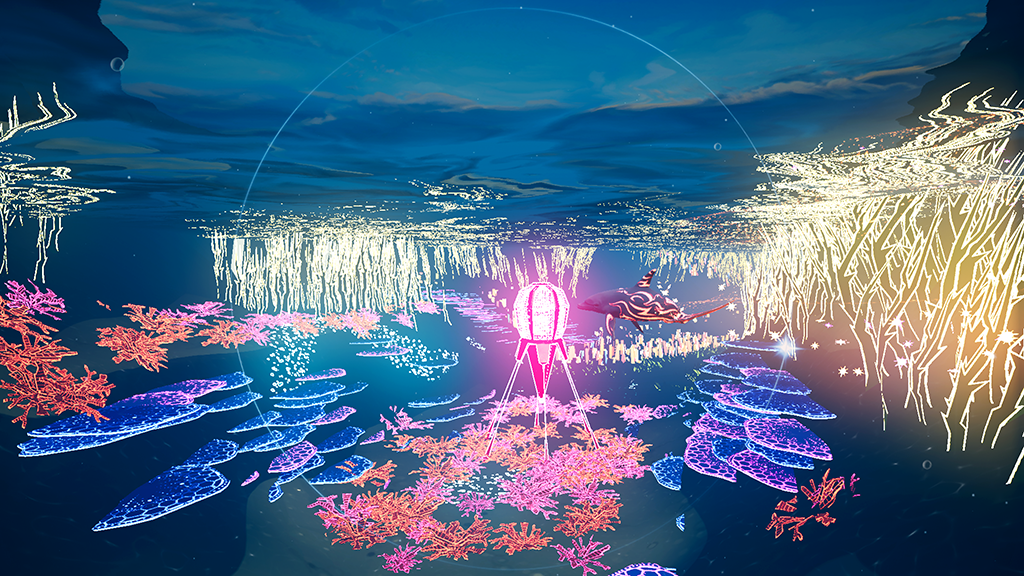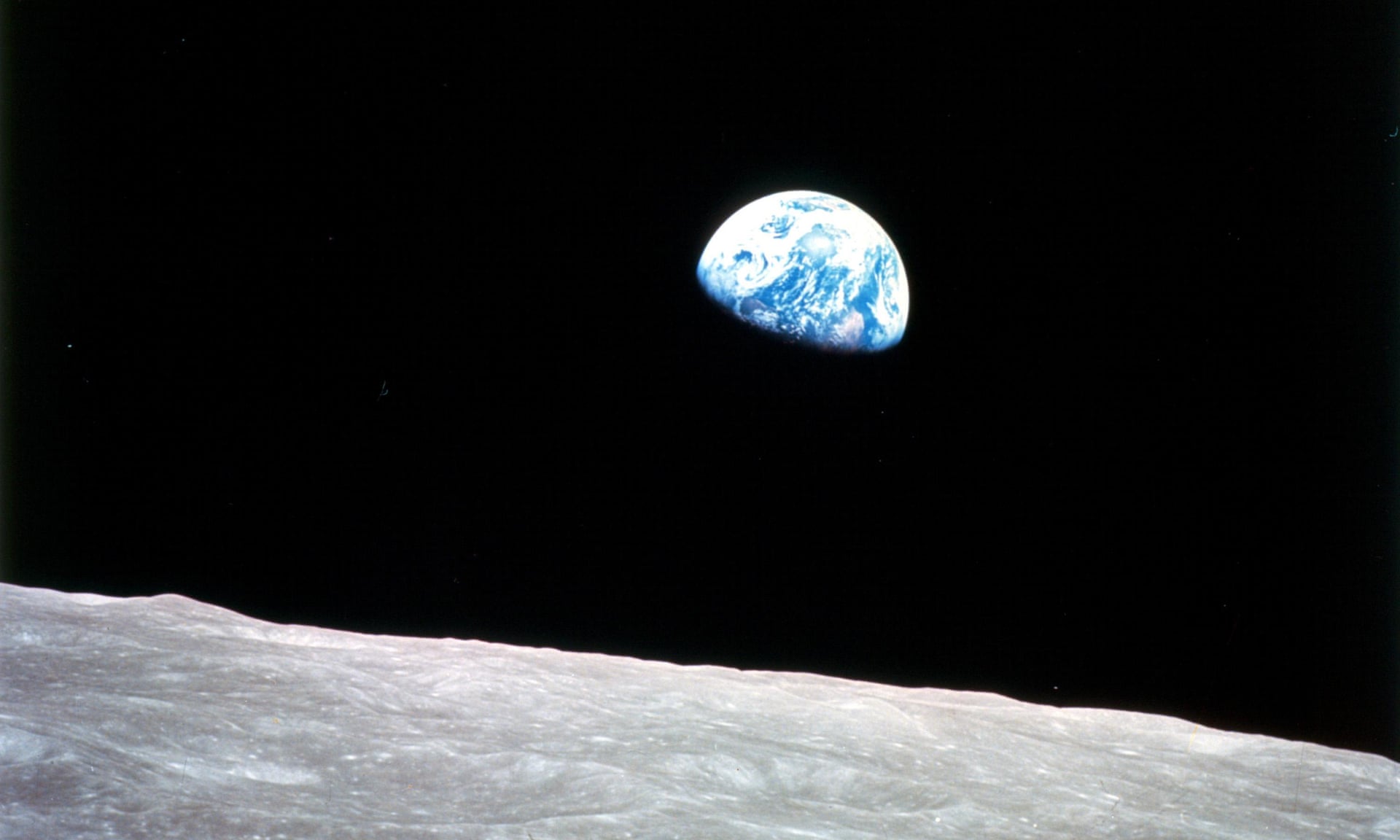
The Video Games Envisioning a Futuristic Ocean Destroyed by Climate Change
The great blue beyond is an ideal backdrop for game developers. It’s naturally mysterious and it gives the player the option to explore in any direction. Gravity isn’t holding anyone down when you’re floating in murky water.
The ocean was the main element in Giant Squid’s Abzu, where you dive through underwater environments brimming with color. It’s also key in Steel Driver, where dark blue waters deliver torpedos between submarines, and Subnautica where the depths hold threatening horrors. The ocean has been a way for game designers to show off beautiful character and level design, but some developers have used it for something more dire.
“In our game climate change has happened, so in Jupiter & Mars we’re basically dealing with the after-effects of it,” said Tigertron cofounder James Mielke. “The way players interact with the consequences of climate change is in the environment itself, navigating your way through sunken, hollowed out, haunted cities like London, New York, Mykonos and the other island settings is often dark.”

Tigertron released Jupiter & Mars, a game about two dolphins trying to help restore the ocean after climate change decimated Earth, in April of 2019. Mielke is among a group of game designers who are using games to showcase a dilapidated and decayed ocean. They hope to bring more awareness and inspire players to change how they interact with the world and its water every day.
“We figured that this would be the most striking way to get people’s attention regarding the potential calamity we’re facing,” he said. “If anything, with the rising acidification levels and plastic garbage polluting the oceans I’d say the deterioration is happening right now.”
Mielke is spot on about the ocean. The great blue, whose phytoplankton supply the planet with its main source of oxygen, is in danger.
“I feel like, for a long time scientists have had to sugar coat things too much. I don’t want to cause hysteria, but there are alot of problems that you can’t see,” said American oceanographer Samantha “Mandy” Joye. “You can’t see the bottom of the ocean, but I’ve been there. I’ve seen the plastic and barrels of oil. It’s remarkable the extent of things are changing and people don’t realize it.”
There are many indicators telling the world that the ocean is hurting. Climate change has led to coral reefs dying, fish changing how they reproduce, and much more. When you take a deep breath on the beach, you’re breathing in plastic that was originally dumped into the ocean. Some researchers calculate that 136,000 tons of microplastic could be blowing onshore each year.
Joye, who is well known for her work studying the Deepwater Horizon oil spill, is one of the experts consulting on the narrative adventure game Beyond Blue. Developed by E-Line Media, Beyond Blue focuses on the ocean ten to fifteen years into the future as sea life has been depleted by climate change.
“We couldn’t realistically depict our ocean while hiding from the stresses that are on it,” said E-Line Media’s Michael Angst. Beyond Blue, which launched in June, encourages players to explore different biomes and ocean environments in depth. While they explore they’ll learn about the methods and tools scientists use to study the ocean in the real world.
Players will see the damage the ecosystem has undergone in the immediate future, including specific stories about species that have been hurt heavily. “We have a story that follows the sperm whales.” Angst added. “The way we depict the stresses is in the encounter with the creature, you may notice it’s unhealthy or they have lower numbers.”
Sperm whales are one of the many species heavily impacted by human abuse of the ocean. Commercial whaling ended in the late 1980s after whales were listed as endangered by the US federal government in 1970. Its federal classification is vulnerable, meaning experts have a promising outlook of the species recovery.
That won’t matter if we don’t change how we treat our oceans. In 2018, after ingesting over 13 pounds of plastic, including flip-flops, a sperm whale washed up in Indonesia. Pollution, along with proposals to allow for commercial hunting again (Japan resumed commercial whaling for the first time in 31 years in July 2019) are threats to whales.
Beyond Blue wants to showcase this type of negative impact that humans have on our waters. “People won’t be motivated to change, if they aren’t aware,” Joye said, emphasizing the importance of how much work E-Line Media put in to getting its ocean depiction right. “Everything in the game is grounded in reality, scientific understanding. That’s one thing to get across to the public. In terms of science and animal behavior, they worked with whale biologists to depict animals the way they behave in nature.”
Alan Gershenfeld, who co-founded E-Line Media, is a member of the United Nations’ Playing for the Planet Alliance, a coalition of more than 20 game developers and companies committed to expanding the positive impact games have on the environment.
During a talk at the GamesBeat Summit 2020 about the impact that games have had on the environment, Gershenfeld shared a sentiment about how media, like Rachel Carson’s Silent Springs, which documented the negative effects caused by the use of pesticides, have helped spark change.
“You could draw a direct line [from Silent Springs] to the creation of the EPA in America,” Gershenfeld said, talking about multiple examples of how media led directly to environmental legislation. “Even photographs, like the Earth Rise photograph by William Anders on Apollo 8, raised awareness of the idea of a singular planet.”

Other members of the panel agreed, saying that adding things like windmills and solar panels to massively popular mobile games can spark conversations about the environment, especially in places where those conversations aren’t common.
For games like Jupiter & Mars, Beyond Blue, and others that try to create an accurate depiction of our decaying ocean, the impact could be similar. They’re unlike previous Ocean-centered games that focus on awe and spectacle.
Many of these developers hope that their depictions of our oceans will help players realize that we’re at a point where our oceans are already dying. The fictional oceans they’re playing in may not be fictional much longer unless we make greater changes to how we interact with them in real life.






